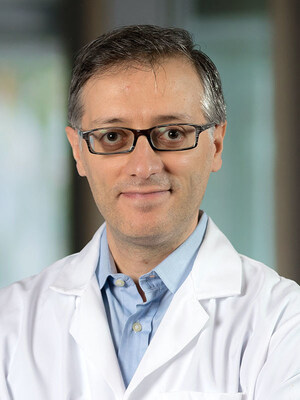NIH Funds Research to See if Gut Microbiomes of Hispanics/Latinos Influence Their Diabetes Risk
BRONX, N.Y., Sept. 27, 2016 /PRNewswire-USNewswire/ -- Researchers at Albert Einstein College of Medicine have received a five-year, $3.9 million National Institutes of Health grant to investigate the role of the gut microbiome in the development of type 2 diabetes among Hispanics/Latinos, the fastest-growing segment of the U.S. population. Hispanics in the U.S. have a 66 percent higher rate of diabetes than non-Hispanic whites (11.8 percent versus 7.1 percent). Since therapies can alter the microbiome in the gut, the research could lead to strategies for preventing and treating diabetes. Einstein co-principal investigators on the grant are Robert C. Kaplan, Ph.D., and Robert D. Burk, M.D. Rob Knight, Ph.D. at University of California San Diego is also a co-principal investigator.
The human gut microbiome is composed of billions of bacteria and other microbes found in the intestines. It not only plays a major role in digestion, but recent studies show it can also increase risk for developing several different diseases including diabetes. The makeup of a person's gut microbiome—namely the number and types of different microbial species and their amounts—can be influenced by environmental factors including the foods we eat, the drugs we take, the air we breathe and the people we live with.
"The human gut microbiome represents a promising target for dietary changes and treatments aimed at combating type 2 diabetes—particularly in groups like the Hispanic/Latino population that disproportionately develop the disease," said Dr. Kaplan, professor of epidemiology & population health and the Dorothy and William Manealoff Foundation and Molly Rosen Chair in Social Medicine at Einstein. "Our study will test the hypothesis that specific gut microbiome compositions are associated with pre-diabetes and diabetes."
The study is aimed at gathering information about the composition of gut microbiomes among Hispanics/Latinos and finding how their different makeups influence their risk for diabetes. To do so, he and his colleagues will study 2,000 participants enrolled in the Hispanic Community Health Study (HCHS)/Study of Latinos (SOL), the landmark research study of Hispanic/Latino health in the U.S., funded by the National Institutes of Health.
A major focus of the study will utilize a fasting two-hour glucose tolerance test to detect diabetes or pre-diabetes in the HCHS/SOL participants. The researchers will look for associations between the participants' diabetes status and their gut microbiome patterns, which will be assessed by determining the genetic composition of the total population of bacteria living within their feces.
Other aims of the study include:
- For Hispanic/Latino individuals of diverse backgrounds and normal metabolism, identify environmental factors that may be affecting their gut microbiomes.
- Look for associations between a person's gut microbiome pattern and characteristics, including geographical/ancestral background (e.g., Mexican, Puerto Rican), gender, age and body mass index.
- Actively follow all study participants to identify those individuals who develop diabetes and estimate the relative risk that disease will develop in people with particular gut microbiome patterns.
The grant is titled "Epidemiology of the Gut Microbiome, Prediabetes and Diabetes in Latinos" (1R01MD011389-01).
About Albert Einstein College of Medicine
Albert Einstein College of Medicine is one of the nation's premier centers for research, medical education and clinical investigation. During the 2015-2016 academic year, Einstein is home to 731 M.D. students, 193 Ph.D. students, 106 students in the combined M.D./Ph.D. program, and 278 postdoctoral research fellows. The College of Medicine has more than 1,900 full-time faculty members located on the main campus and at its clinical affiliates. In 2015, Einstein received $148 million in awards from the National Institutes of Health (NIH). This includes the funding of major research centers at Einstein in aging, intellectual development disorders, diabetes, cancer, clinical and translational research, liver disease, and AIDS. Other areas where the College of Medicine is concentrating its efforts include developmental brain research, neuroscience, cardiac disease, and initiatives to reduce and eliminate ethnic and racial health disparities. Its partnership with Montefiore Medical Center, the University Hospital and academic medical center for Einstein, advances clinical and translational research to accelerate the pace at which new discoveries become the treatments and therapies that benefit patients. Through its extensive affiliation network involving Montefiore, Jacobi Medical Center—Einstein's founding hospital, and three other hospital systems in the Bronx, Brooklyn and on Long Island, Einstein runs one of the largest residency and fellowship training programs in the medical and dental professions in the United States. For more information, please visit www.einstein.yu.edu, read our blog, follow us on Twitter, like us on Facebook, and view us on YouTube.
SOURCE Albert Einstein College of Medicine
Related Links
WANT YOUR COMPANY'S NEWS FEATURED ON PRNEWSWIRE.COM?
Newsrooms &
Influencers
Digital Media
Outlets
Journalists
Opted In






Share this article